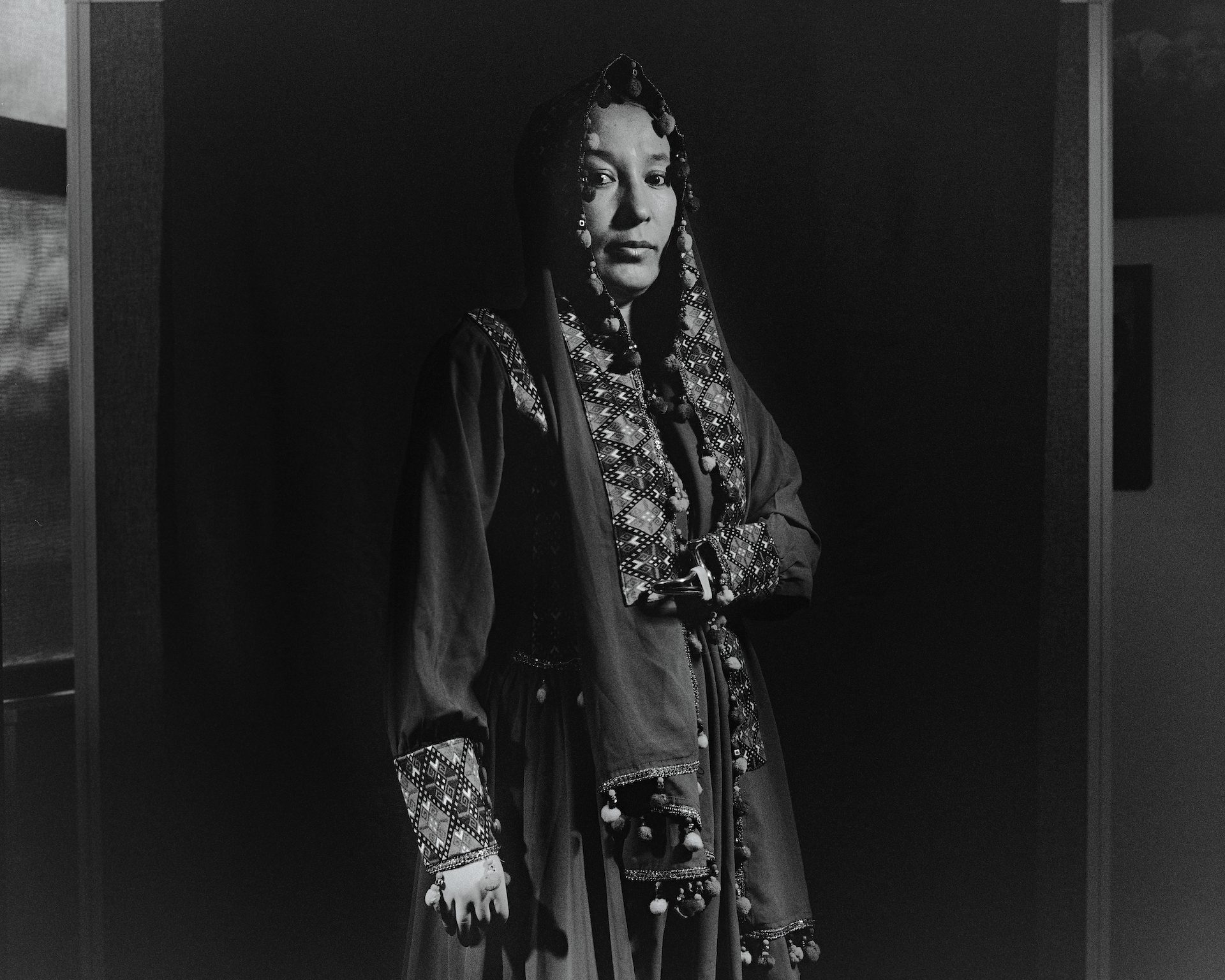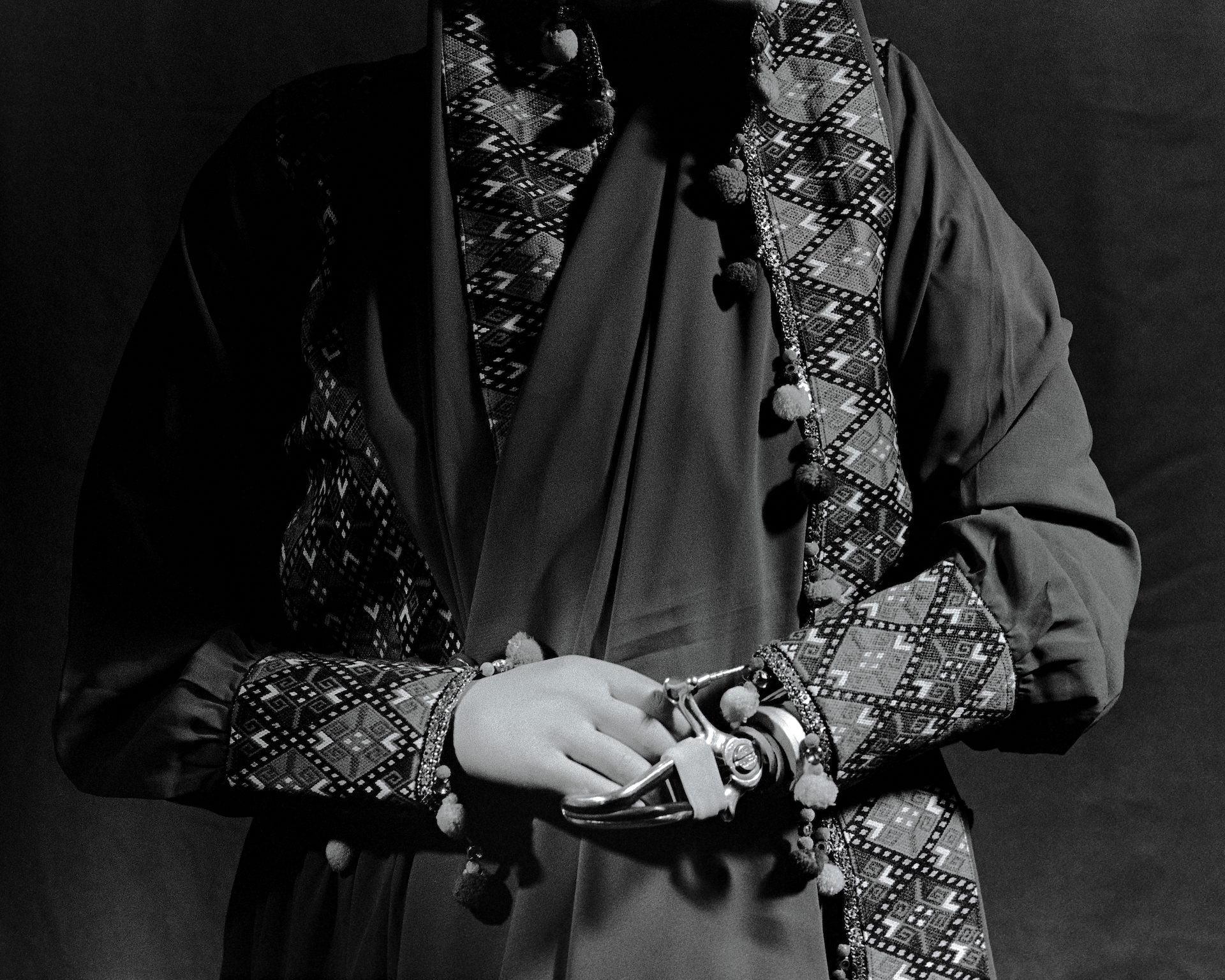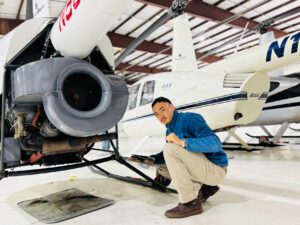 Mustafa Hussain for Borderless Magazine
Mustafa Hussain for Borderless MagazineNekbahkt, a Hazara Afghan woman and double amputee, was forced to flee Afghanistan leaving behind her husband and disabled brother. She now awaits to be reunited with her husband.
This story contains a reference to suicide. If you or someone you know is in crisis, call or text the Suicide & Crisis Lifeline at 988. You can find local providers offering free or low-cost mental health services here.
Nekbahkt is a 33-year-old Afghan woman, navigating life alone as a double amputee in Chicago.
For years, she had to learn to navigate life on her own after losing most of her family in a suicide bombing. Then after meeting the love of her life and getting married, her life took another tumultuous turn when the U.S. withdrew from Afghanistan and the Taliban seized power in August 2021. She escaped and is building a new life in Chicago but awaits to be reunited with her husband.
The Taliban’s takeover of the country marked a turning point for Afghans, like Nekbahkt, who have grappled with a crackdown on women’s rights, displacement and family separation.
News that puts power under the spotlight and communities at the center.
Sign up for our free newsletter and get updates twice a week.
More than 120,000 Afghan civilians evacuated the country in August 2021. A federal effort dubbed Operation Allies Welcome evacuated 76,000 Afghans to the United States. More than 2,500 Afghan refugees now call Chicago their home.
Nekbahkt resettled in Chicago with the help of RefugeeOne, a nonprofit that serves refugees and immigrants of all ages and backgrounds. The agency helped about 500 Afghans find housing, employment, health support, and legal services and provides English language classes.
The organization assists Nekbahkt with intensive case management because of her disability. The group’s support ensures she continues to receive the medical services she needs such as updated prosthetics and a community support system.
Borderless Magazine spoke with Nekbahkt about the events that changed her life, her escape from Afghanistan, and her resilience through adversity.
My family was poor, but we were lucky. My parents would take care of me and my siblings and motivated us to pursue an education. My family is from Ghor Province in central Afghanistan, where it’s too hot. The weather is why my family decided to go to Herat Province.
In 2007, Hamid Karzai was president of Afghanistan, and around that time suicide bombings were on the rise across the country. One day on our way to Herat, a suicide bomb exploded on a bridge.
I lost my mother, father and sister.
I was immediately taken to the Kabul emergency hospital. I survived but I lost my hands and parts of my arms. My brother survived but he was left disabled, too. People would always ask me: “How are you going to live?” They would say that I was better off dead.
I had a pretty hard life, and I once tried to commit suicide.
It was hard for me to accept that I was disabled. However, I eventually discovered a local organization called the Community Centre for the Disabled (CCD). It helped people with disabilities find work, get an education and support with lifestyle adjustments. When I got there, I saw other people who had also lost their legs and hands. Seeing how severe their conditions were made me forget my own pain.
When I joined CCD, I pursued my education in political science. I eventually got a part-time job with them as an activist helping the organization expand program funding and increasing donors.

I met my husband while taking English classes at another Muslim organization in 2019. He was interested in me, but it was hard to trust men because of my condition. I heard many stories from other women with disabilities who experienced trauma from relationships. All of this made it so hard for me to consider marriage.
Still, he wanted a future with me, so I established some rules and expectations of what a future together might look like. His mother disagreed with our relationship, but we eventually got engaged in 2020 and had a small wedding in June 2021.
We planned to eventually move to Tajikistan, by opening a case with the United Nations High Commissioner for Refugees. But things didn’t work out.
After our wedding, we immediately went to Kabul. At the time, the Taliban had begun taking over provinces but had not yet overtaken the capital. But they slowly came close to Kabul and the situation grew worse every day. We couldn’t find a hotel, so we stayed with my coworker and her family. But eventually, we couldn’t stay for long.
We had to hide from the Taliban; I was unable to walk anywhere by myself.
Read More of Our Coverage
I encouraged my husband to return to our home in Balkh Province and figure out escape plans when the situation improved. That time never came.
He returned to Balkh, and that’s when the Taliban seized control. It was so hard for me to communicate with him and my coworkers. I couldn’t find phone cards to make calls or use the internet. We spent less than three months together as a married couple.
After the Taliban took over, my coworkers connected with the Yalda Hakim Foundation; they were evacuating Afghans. I was told to meet them at a certain hotel where they would take care of me and help me evacuate to Qatar. I stayed there for three days. I immediately called my brother and husband. My brother told me; “You always make good decisions. You know what to do.”
When I got to the hotel and found my name on the list, and I was so scared. But seeing other Afghans with me, I felt better. I called my husband to let him know I was safe. They put about 18 of us on a small bus and drove us to Kabul airport. When we got to the airport, I told someone that I was disabled and needed my husband to be with me. But I was urged to go now without him and that I could connect my husband with a future flight.
After leaving Qatar, I went to Albania for seven months. We were treated really well during our time there.
Finally, I received humanitarian parole status from the U.S.
I first arrived in Virginia but I wanted to be around other Afghans. I heard Chicago had an Afghan community, specifically the Hazara community, which is my ethnic group. I made it to Chicago in May 2022. Some Hazara community members were informed that I would be coming to Chicago so they organized a group of women to care for me. They have been a big help.
Life as a disabled woman is still hard. For example, I live alone and cannot open the door. I have to wait for someone to open it.
I have friends that help me. But there is no doorbell or buzzer to open the door for guests in the building entrance, so I must keep coming up and down the stairs. So I gave some friends copies of the keys, but I can only give them to some.
My asylum case was recently approved and I can apply for a green card in one year. I hope to reunite with my husband. He was approved to come to the U.S. in March, but I don’t know when he can come.
My brother, who was struck in his head because of the explosion, is also disabled, so I plan to bring my brother here after my husband comes.
Now, as I settle into my new life, I want to continue my education and hope to one day get a job as an interpreter.


